
APS has updated its publicly available collection of journal research pertaining to trauma and disasters. [updated February 14, 2023]

Mariana Furtado explores how unhealthy competition among students can shape their graduate-school experience and affect their mental health.

Fostering children’s psychological well-being could help reduce their risk for heart conditions as adults, according to findings from a longitudinal study of British people born in 1958.

Health behaviors and emotional stressors can alter the body’s ability to develop an immune response to vaccines, including—potentially—the new COVID-19 vaccines.

Nearly 2 years into the COVID-19 pandemic, an emerging body of literature is revealing the pandemic’s mental health impact on children, adolescents, and adults, including those who had previously been diagnosed with a mental illness.
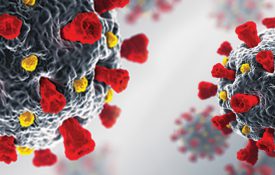
Cell phones and social media can help teens cope with stressful events—as long as they strike the right balance between spending time online and pursuing other coping activities.

New research proposes lifestyle, social, and psychological factors may increase the risk of contracting COVID-19. [July 9, 2020]

By providing wider access to emotion words, creating the potential for more optimism, and enhancing social relations, the Spanish language may influence how individuals build emotion schemas and appraise stress, influencing cardiovascular reactivity and recovery.

This industrial-organizational psychologist works with teams across the fields of healthcare, space exploration, and the military.

Being in sync with physical signs of stress is linked with greater psychological and physical well-being.
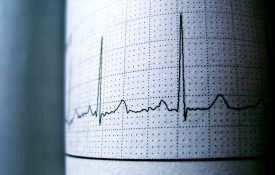
Psychological scientists have long known that psychological and social factors can affect our responses to viral infections and vaccinations, but that critical connection seems to have eluded many of the public health officials and others charged with leading the global response to the COVID-19 pandemic in its early days.

Academic life is not just about discovery and excitement. Seven scholars share some common negative experiences in academia that no one talks about.

Brain imaging research suggests that our ability to do “cold” math calculations may be connected with our ability to regulate “hot” emotions.
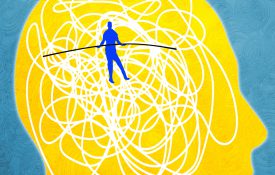
Reduced access to rewards may influence brain development, contributing to the increased prevalence of mental health disorders in children living in economically impoverished environments.

Which social skills go out the window when folks become groggy? What stressors make for lousy sleep?

Psychological scientists have uncovered an alarming link between chronic stress and cellular aging. The length of our telomeres, the protective caps at the tips of our chromosomes, may foretell health risks.

How people respond to health threats can influence their own health and, when people are facing communal risks, even their community’s health. This interview explores how reducing fear may jeopardize health behaviors.

Psychological research confirms that smartphones are indeed creating a new kind of stress for people at home, at work, and in social settings.

Teaching teens that social and personality traits can change helps them cope with social challenges such as bullying, which can help mitigate stress and improve academic performance.
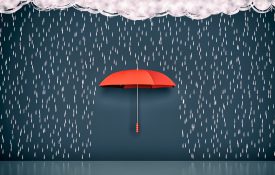
Providing help to friends, acquaintances, and even strangers can mitigate the impact of daily stressors on our emotions and our mental health, according to research published in Clinical Psychological Science, a journal of the Association

Men and women both provide strong support to their partners, but women tend to do a better job of being supportive under stressful situations.

You probably don’t need statistics to appreciate the pervasive role of stress in American life, but the numbers are there if you do. A recent Stress in America survey found that a quarter of adults

Researchers find that the impact of stress on decision-making, including risk aversion and antisocial behavior, increases over the course of the first hour after a stressful event.

Scientists find that simply encouraging people to reframe the signs of stress before public speaking was a surprisingly effective way of handling stage fright.

When people under stress are making a difficult decision, they may pay more attention to the upsides of the alternatives they’re considering and less to the downsides, studies show..

Natural resilience may not be as common as once thought -- data suggests that many people confronted with a major life-altering event can struggle considerably and for longer periods of time.

Expecting employees to take a one-size-fits-all approach to emotional labor can quickly lead to burnout without the right support systems in place.

Feeling pressure may impair performance for people who score high on measures of neuroticism, a study has found.

Can simply describing your feelings at stressful times make you less afraid and less anxious? Researchers investigate.
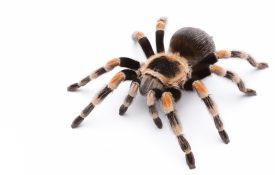
What do we know about the prevalence of mental health difficulties among psychological scientists? APS member Sarah Victor, a clinical psychologist and professor at the Texas Tech University, joined APS’s Ludmila Nunes to discuss mental health among psychologists.

Chronic stress seems to dampen people’s neurological ability to bounce back from negative situations—causing even more stress.

Children often show remarkable resilience, but survey data shows that repeated exposure to adversity in childhood can have a significant impacts on health and well-being later in life.

Findings from a longitudinal study suggest that childhood bullying may lead to long-lasting health consequences, impacting psychosocial risk factors for cardiovascular health well into adulthood.
